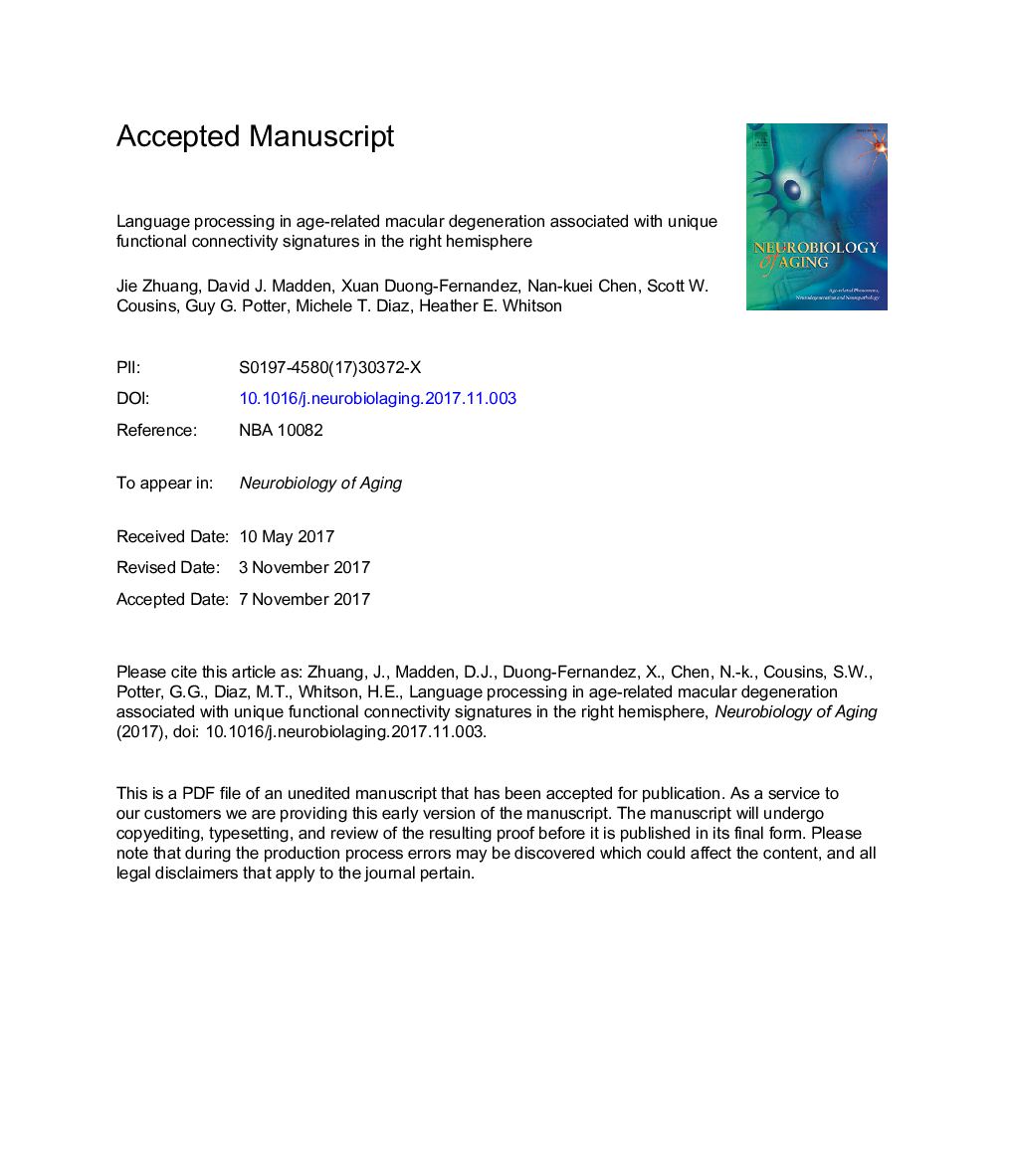| Article ID | Journal | Published Year | Pages | File Type |
|---|---|---|---|---|
| 6803063 | Neurobiology of Aging | 2018 | 47 Pages |
Abstract
Age-related macular degeneration (AMD) is a retinal disease associated with significant vision loss among older adults. Previous large-scale behavioral studies indicate that people with AMD are at increased risk of cognitive deficits in language processing, particularly in verbal fluency tasks. The neural underpinnings of any relationship between AMD and higher cognitive functions, such as language processing, remain unclear. This study aims to address this issue using independent component analysis of spontaneous brain activity at rest. In 2 components associated with visual processing, we observed weaker functional connectivity in the primary visual cortex and lateral occipital cortex in AMD patients compared with healthy controls, indicating that AMD might lead to differences in the neural representation of vision. In a component related to language processing, we found that increasing connectivity within the right inferior frontal gyrus was associated with better verbal fluency performance across all older adults, and the verbal fluency effect was greater in AMD patients than controls in both right inferior frontal gyrus and right posterior temporal regions. As the behavioral performance of our patients is as good as that of controls, these findings suggest that preservation of verbal fluency performance in AMD patients might be achieved through higher contribution from right hemisphere regions in bilateral language networks. If that is the case, there may be an opportunity to promote cognitive resilience among seniors with AMD or other forms of late-life vision loss.
Related Topics
Life Sciences
Biochemistry, Genetics and Molecular Biology
Ageing
Authors
Jie Zhuang, David J. Madden, Xuan Duong-Fernandez, Nan-kuei Chen, Scott W. Cousins, Guy G. Potter, Michele T. Diaz, Heather E. Whitson,
